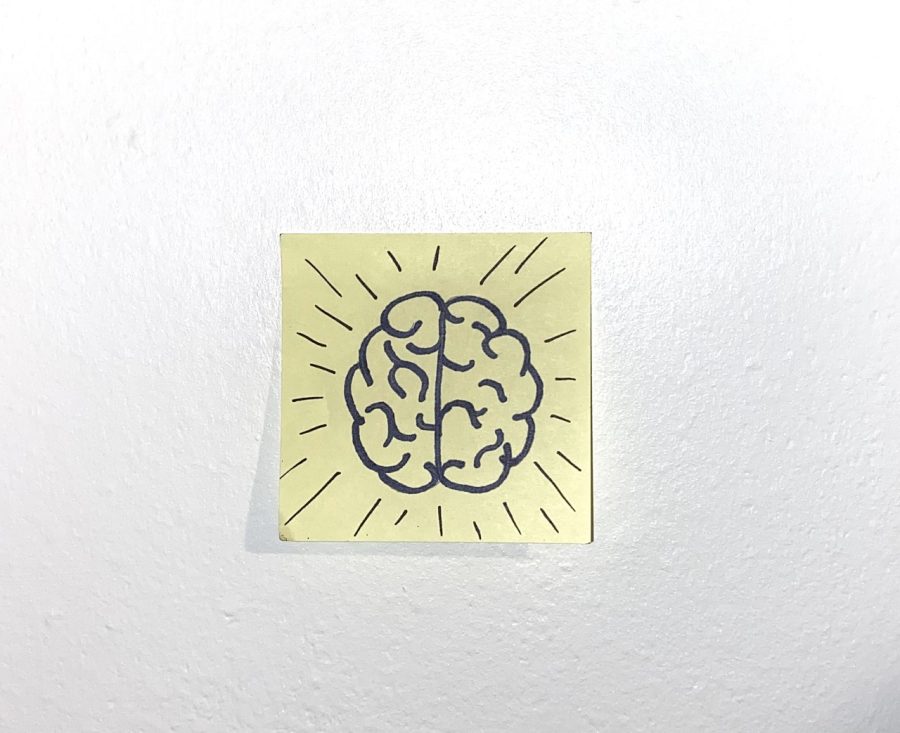Our overstimulated brains
Today, teenagers spend hours on screens each day viewing the internet and social media.
October 30, 2022
Today, what may have seemed impossible as little as 20 years ago is now commonplace: world news, media, internet, entertainment and social interaction all at your fingertips, accessible from a tiny device in your pocket.
With the invention of technology like smartphones, tablets and computers, our brains have been given access to stimulation on demand. According to data from the Pew Research Center, 97% of teenagers report using the internet daily and 46% say they use it “almost constantly.” But it isn’t just the amount of time spent online that is a problem, it is the nature of what we view and interact with. Social media makes up a large percentage of screen time for teenagers. Apps like Instagram, Twitter, Facebook and TikTok provide never-ending feeds filled with content and built for endless scrolling. The result is that our brains are rapidly exposed to information; photos, videos, audio and imagery fill our brains only to be left behind a moment later as we move on to the next post in our feed.
It’s easy to see how this pattern causes overstimulation: a feeling the human brain experiences when it becomes overwhelmed by noises, sounds, sights and sensations. This feeling is all too common in a world where people are rapidly consuming media like never before. UCLA Director of Neuroscience Dr. Whybrow even calls screens “electronic cocaine” because they can impact the brain’s frontal cortex in a way similar to drug use.
While many consider screen time to be relaxing or an escape from the real world, it is actually the opposite; while you scroll through content your mind is racing to keep up. The kind of rapid switching from task to task that teenagers do on their phones can actually negatively impact the brain. According to an article by The Guardian, “Multitasking has been found to increase the production of the stress hormone cortisol as well as the fight-or-flight hormone adrenaline, which can overstimulate your brain and cause mental fog or scrambled thinking. Multitasking creates a dopamine-addiction feedback loop, effectively rewarding the brain for losing focus and for constantly searching for external stimulation.”
Spending too much time on screens can leave a person feeling mentally and emotionally exhausted. These days, a trip online means being bombarded with information, websites, articles and social media posts that beg for your attention. Article headlines and news stories broadcast anxiety-inducing world events while apps like Twitter showcase trending topics and hashtags, each one its own rabbit hole of tweets and online conversations. TikTok is especially overwhelming with its “for you page” of short videos. On this app you may find yourself laughing at one video and crying at the next, experiencing dozens of emotions in a matter of minutes.
Screen time can be addicting, but it’s important to give your brain a needed break every once and a while to slow down and relax. You can avoid overstimulation by designating time to spend without your phone or by limiting your screen time in general. The internet is an amazing tool that should be used in moderation, so don’t forget to look after yourself and take care of your brain!









